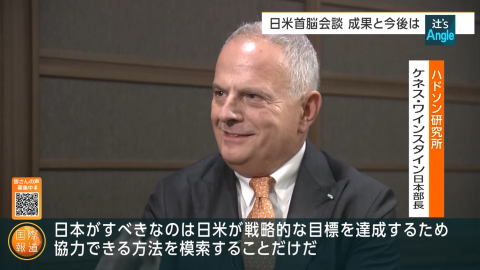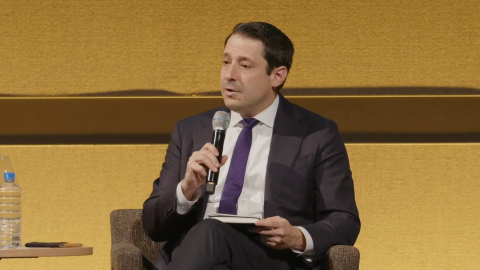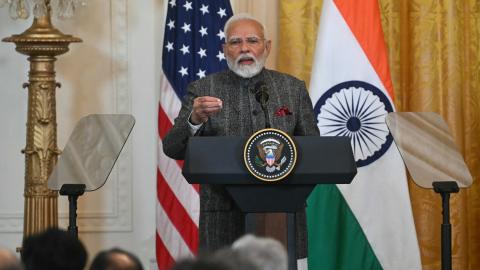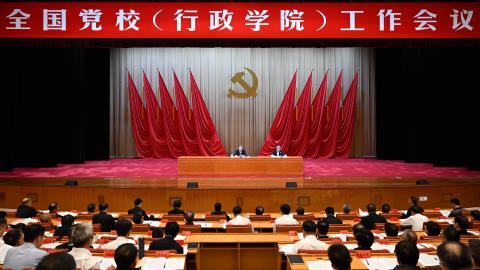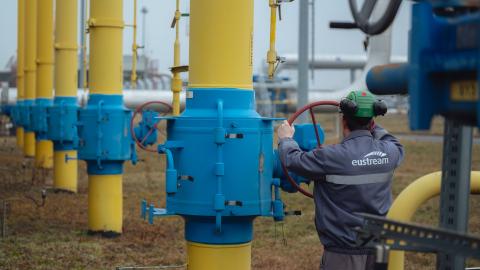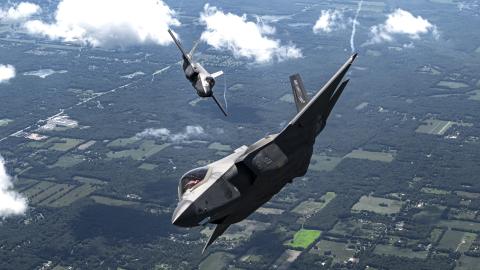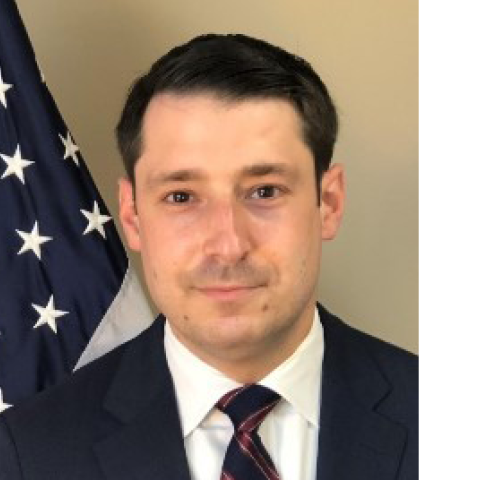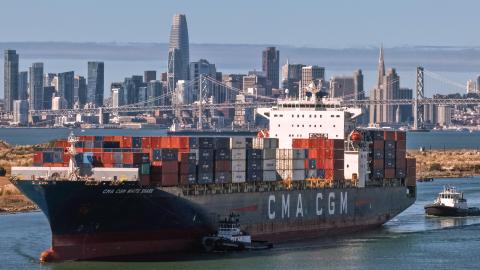
How Long Can Russia’s Weakening Economy Support Putin’s War on Ukraine?
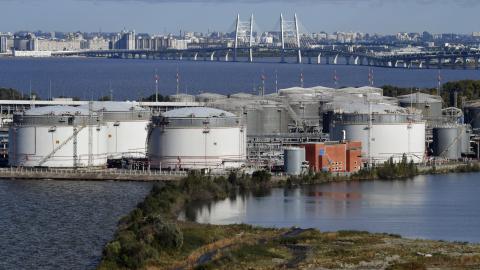

Chairman and Professor, Department of Economics, Indiana University

Senior Fellow, Stockholm Free World Forum and Adjunct Professor, Georgetown University

Senior Fellow
Thomas J. Duesterberg is a senior fellow at Hudson Institute and an expert on trade, manufacturing, economics, and foreign policy.
In 2025 signs of weakness in the Russian economy are increasingly visible: high inflation, growing financial stresses, gasoline and food shortages, rapidly slowing oil revenues, shortages of key manufacturing parts, failed auctions of sovereign bonds, and depletion of its sovereign wealth fund. Many analysts predict the Kremlin’s ability to maintain its war economy will be severely stressed in the coming months, especially as Ukrainian strikes reach more Russian infrastructure and degrade the petroleum industry that pays for the war.
Join noted economists Anders Aslund and Volodymyr Lugovskyy and Hudson Senior Fellow Thomas Duesterberg for an event that will analyze how growing economic problems are affecting Vladimir Putin’s war effort and his ability to avoid an economic crisis.
Event Transcript
This transcription is automatically generated and edited lightly for accuracy. Please excuse any errors.
Thomas J. Duesterberg:
Good morning everyone, and welcome to the Hudson Institute. I’m Tom Duesterberg, a senior fellow here. I work on international economics. We’re here today to discuss the growing weaknesses in the Russian economy and whether they will have an impact on the pace and conduct of Vladimir Putin’s war of aggression in Ukraine, and perhaps his ability to maintain his iron domination of the Russian state and society. Many analysts in recent times have predicted that the Kremlin’s ability to maintain the war economy will be severely stressed in coming months, especially as the Ukrainian strikes reach more of the infrastructure in the petroleum industry inside Russia. And the petroleum industry pays for a considerable chunk of the national budget of the Kremlin. So Russian sovereign finances in the banking sector have become more stressed in recent years trying to pay for the war. The Russian propaganda and influence machine also obfuscates official economic data in the state of the financial system, which makes hard analysis a difficult task.
And the Russian Central Bank and economic officials are quite skilled at creating a narrative of a growing economy, a well-supplied war machine, and a thriving consumer sector. In their narrative, sanctions are useless and counterproductive because of the deep strengths and internal unity of the Russian Republic. So our discussion today will also explore the efforts of the Putin team to promote what I think is a questionable narrative intended to undermine Western unity and discourage further western aid to the Ukraine. So to help understand the current reality, we’re pleased to welcome two outstanding economists with long experience in studying the black box of the Russian economy. First, Dr. Volodymyr Lugovskyy, the chairman and professor of the Department of Economics at Indiana University. Lugovskyy’s research spans international trade and finance and applied microeconomics on subjects such as the rare earths and semiconductor industry. His commentary on East European and Russian economies appears frequently in the Kyiv Post.
He had earned advanced degrees in economics from the Kyiv School of Economics and at Purdue University. Second Dr. Anders Aslund is a longtime observer who many recognize as the Dean of Russian and East European Economics. He’s now a senior fellow at the Stockholm Free World Forum and adjunct professor at Georgetown University. He was the founding director of the Stockholm Institute of Transition Economics and has led research at the Carnegie Endowment, the Atlantic Council, and the Peterson Institute here in Washington. He also has served as an economic advisor to Russia, Ukraine, and Kyrgyzstan. His commentary on the Russian war economy is widely cited in major US and European publications. Dr. Aslund received his PhD in economics from Oxford University. So I’m going to turn the floor over first to Professor Lugovskyy, then Professor Aslund for some opening remarks. Then we’ll retire to the stage for a discussion.
Dr. Volodymyr Lugovskyy:
Thank you very much, Tom. Thank you everybody for coming here. So I’ll continue the introductory remarks by Tom in the sense that for the last three years, there has been an intense debate whether sanctions against Russia work. And so critics point to two factors, one is that Russian economy has not collapsed. Two, the war in Ukraine is going on. In my opinion, this is the wrong yardstick. A better question we should be asking is what would Russia have done, what would Russia have achieved without sanctions globally and in Ukraine? So how much more could Russia have spent on spreading its influence on covert operations, on disinformation in all these countries? So let’s start outside Ukraine. So in Europe, countries like Germany, France, Italy are breaking those legacy energy ties with Russia. Russia oil is being replaced and the shift is permanent.
By middle of 2025, United States is the largest supplier of the liquefied natural gas to Europe, Eastern European countries. Russia has not achieved its goals in elections of Moldova and Romania. It’s losing its influence in many other countries with notable exceptions of Hungary and Slovakia. Former Soviet republics, so if you think about countries like Kazakhstan, Azerbaijan, Armenia, these countries are asserting its independence much stronger, and in some cases even directly confront Russia. All these changes were unimaginable three years ago, and they did not happen in a vacuum. They happened because Russia has less resources to spend on all of these countries and to spread its international influence in which it’s actually very skillful. So then of course the question, why hasn’t Russian economy collapsed? So in my opinion, there are two factors. Russia is a country rich in national resources and high oil prices helped. Second, it was spending aggressively, it was using its economic war chest, the National Management Fund, which it was accumulating for decades, prior to the war, it was estimated at $200 billion.
Now its liquid assets are estimated about $35 billion. So it was spending aggressively on the war machine, it was spending aggressively on other things. So now Russian economy is a tipping point. So if you think about budget deficit, originally, so last December or so, it was projected to be only $14 billion. So now by October, Russian government has reevaluated the budget deficit estimates and now projects it to be five times higher at $70 billion. Experts expect that at this rate, at the end of the year, probably it’ll be actually close to a $100 billion. You have double-digit inflation, you have persistent shortages of electricity and fuel in many regions. So Russia now actually imports fuel, right? So it exports crude oil, but it actually imports fuel.
So dependence on China and India these days, so it actually decreases their profit margins international trade. And so what we are thinking about is not just about revenue, it’s not just about GDP, it’s actually about profit margins because these are the margins Russia can spend. So the war financing is also declining. So Russia relies on mercenary army. And so a big factor in attracting soldiers are enlistment payments. Up until recently in many regions they were up to $35,000, so that’s an equivalent of three and a half years of Russian average salary. Just few weeks ago, they cut them down to $10,000. The human cost of Russian army is also staggering. According to UK Ministry of Defense, only in 2025, Russia lost 332,000 soldiers killed or wounded. So Russian government is expected to pay to the families of fallen soldiers $120,000, and that could contribute to up to $40 billion in fiscal burden.
So not to do that, Russian military units are increasingly reporting these fallen soldiers missing, contributing to record number of missing persons in Russia this year. So all of this happened before sanctions imposed by United States and European countries just recently in October 2025. And so early signals show that these sanctions might be very impactful and now potentially is good time to impose sanctions on Russian oil because there are countries like traditional suppliers in Saudi Arabia, but also new suppliers like Guyana who would be able to replace and willing to replace Russian oil in the world markets if given a chance. So then of course, why doesn’t Russia stop? So Russia doesn’t stop because in Russia, weakness is dangerous. If Putin stops the war, he might be perceived as a weak leader and so he might be challenged by forces from within Russia. So we are talking about security forces, we are talking about Army, we are talking about strong regional leaders, figures like Ramzan Kadyrov in Chechnya already openly confronts federal authorities.
What comes next? So as I said before, Russia currently replies on mercenary army. So that’s expensive, but that allows them to manage political risks because population does not perceive it as something which affects them directly. If they run out of funds, they would probably have to reserve to conscripts rather than the mercenary army. So that would be cheaper, but potentially it’ll reduce the effectiveness of the army. More importantly, it’ll actually increase these political risks. So to conclude, right, so even if Russia doesn’t stop the war immediately on the near future, its ability to wage the war effectively is eroding. And so now it’s good time to act, and now it’s good time to potentially undermine Russian economy even more. Thank you very much.
Dr. Anders Aslund:
Good morning everybody and thank you very much for the kind invitation from the Hudson Institute. What I would like to discuss here is very much in line with what Professor Lugovskyy just said, and I basically agree with all of what he said, but let me take up other sides of it. The Russian economy is mediocre, one percent growth this year and going forward, eight percent inflation now, and it’s not going to be less. So this is essentially a stagflation, and I completely agree with what Professor Lugovskyy said about collapse. We should not discuss it as collapse. Collapse is what certain politicians say when they want to show how important they are and say, “Now we are going to impose sanctions from hell and they will break the economy.” It doesn’t work like that. What sanctions do is that they reduce resources. So if we take it in general terms, if there hadn’t been sanctions on Russia since 2014, the Russian economy might have grown by three percent a year.
Now it has grown by one percent a year, so this is the big difference. And I would like to focus on two choke points for the Russian economy. Professor Lugovskyy touched up on both. One is finance and the other is oil exports. And the essence of it is that the Russian economy is very vulnerable, and this vulnerability should be more exploited by the west than is currently the case. The military expenditures in Russia are now about $180 billion. And for the next budget, there’s three points that are quite important. The first is that for the first time since the war started, Russia is not increasing its military budget. So they’ve reached some kind of limit. 180 billion, how much is that? Eight percent of Russia’s GDP. And that’s a lot by Western standard, but not by war standards. We should probably add a few percent, which is money that goes through state banks and through regional budgets, but it’s still relatively limited.
Ukraine spends 50 percent of its GDP on the military because for Ukraine, this war is existential. Ukraine cannot afford to lose the war, then the country will cease to exist. If Russia loses the war, what will happen? Putin will lose power. So it’s existential for Putin, but not for Russia. And this I think is a fundamental point that we need to keep. So the first point is that Russia has now decided, that is the Kremlin, that is Putin, that it is not prepared to spend more on the war than it does this year. And the second point that follows from that is that Russia is no longer trying to win the war. It’s trying to have a long war that it can maintain. And that is quite an important point. And think then that you have a Russian population, why would you like to have a long war where more than 200,000 soldiers have been killed? Which is an enormous number.
During a decade of the war in Afghanistan, the Soviet Union officially lost 15,000 soldiers dead. So this is far more expensive. And what happens when a war ends? Well, you will get two million war veterans coming home and asking, “Why did you, Vladimir Putin, do this?” And there’s no good answer. So my big argument is that for Putin, it’s better with a bad war than a good peace. And therefore, all of his discussion about ceasefire, it’s just empty talk. Putin has never shown any interest in reducing his demands. He wants to have Ukraine wiped out from the map, and that is the aim of the war. And then a third point about the new budget is that Russia is now increasing from the first of January value added tax from 20 to 22 percent because it needs more budget revenues. And that means that it’s now the Russian population very directly that has to pay for the war. There’s no escaping and saying that the war doesn’t cost anything to the population. So this is quite a serious situation and how much does that give? 0.5 percent of GDP in the extra revenues. So Russia’s federal revenues are 18 percent of GDP. And Russia, for the last three years had a budget deficit of two percent of GDP, $40 billion, which by any Western standards are tiny. In particular in the wartime. Why? Because of the financial sanctions. So the financial sanctions have meant that Russia could only finance by $40 billion a year. This year it will be more, and therefore Reserve Fund will be emptied altogether, which is of course a good thing. And then Russia will next year face the situation. Can it increase taxes? Well, a little bit as we see, but not much more.
The budget deficit cannot be increased and Russia can’t borrow money from anybody, not even from China. China gives technology but not financing to Russia. So the financial reserves are vital and they are ending. The other point is the energy sanctions. If you look upon Russia’s export revenues, it used to be that two-thirds of it came from oil and gas. Now, in recent years, had gone down to half and it will be less this year. The oil and gas sanctions on Russia reduced Russia’s export revenues by 28 percent from 2022 to 2023. And there is no forecast of these revenues increasing, and there is a great opportunity to reduce them further. So how could that be done? 50 percent of the Russian oil comes is being shipped out of the Baltic Sea, 40 percent from the Black Sea. And these are extremely vulnerable. So what can be done? Well, Ukraine recently bombed one of the big oil terminals in the neighborhood of St. Petersburg. There’s one more.
This is the most effective sanction, that Ukraine bombs all the facilities in Russia. But Denmark used to control the straits physically until 1857. It was because of a peace settlement after the Crimean War that Denmark lost that control. It can be restored. Similar with the Black Sea was demilitarized from 1857 to 1878. Why not do that again? Ukraine has beaten the Russian Black Sea Navy. So the point here is that the Russian oil exports are very sensitive. Now, about 600 of Russian shadow tankers have been sanctioned. This can be made much more effective. Ukraine is bombing the oil assets and that is costing something immediate. I was in Kiev the second week of September, and what Ukrainians say is really effective on the Russian population. That is when there is shortage of electricity, gas, water, and that these are the things that really matter.
Inflation not so obvious. And then we come to a third choke point after finance and India revenues, and that is labor. So Russia has enormous labor shortage. The official unemployment is 2.2 percent, and all companies are calling for more labor. There is strong wage in inflation and it costs a lot to recruit soldiers. And now the region budgets don’t have the money to recruit soldiers any longer and the military industry has taken very big increases in the costs and that goes straight back to the budget. So this is a shaky situation. We are not seeing the collapse, but when you wonder how will it all end?
My point is very strongly, Ukraine can’t afford to lose this war because then Ukraine disappears. For Russia, it’s only a matter of Putin’s survival. So how does such a war end? I have two alternative historical examples. In 1918, there were coups in Berlin and Munich in November 1918 that ended the war or revolutions, and that stopped the war. While the German troops were standing far beyond the borders, both in the east and the west. It’s not necessary to defeat Russia on the ground. It’s necessary to defeat Russia at home. And the other example, which is a bit more gruesome, that’s Russia in 1917 when the Russian soldiers turned around and started shooting their officers instead of the soldiers on the other side. So I think that this are the kind of scenarios which we’d look for and how can you reach it when the cost of the war becomes too large. Thank you.
Thomas J. Duesterberg:
Well, there are some very interesting thoughts here and the focus on the internal dynamics of shortages and choke points and on the sort of psychological impact inside Russia is very interesting. So thank you. I want to start by focusing a little bit more on the choke points. One is finance. There have been some reports the Russian Central Bank tries to hide these reports, but that since the Russian state is unable to raise funds outside of its own borders and the Chinese apparently are not helping out financially. So one of the other possibilities is issuing bonds, and there have been a number of bond sales that have failed. Does this indicate that the ability to finance the war or the budget internally is eroding in a serious way? Anders?
Dr. Volodymyr Lugovskyy:
That’s you.
Dr. Anders Aslund:
Okay, thank you. Yes, it shows that it is eroding, and we have seen a funny situation that Russia has had a high inflation of 10 percent last year and small budget deficit of two percent of GDP that officially has been fully financed by the Reserve Fund. This doesn’t hang together. And I think what the explanation is, as Craig Kennedy has elaborated upon, that the state banks are buying bonds that are issued by the state. And this is not printing money directly, but it’s printing money indirectly. So that there is really a bigger money supply then it’s officially the case, and therefore higher inflation, and you can’t take it too far. Now they have managed to reduce the inflation in the last few months from 10 to eight percent, but et cetera banks says optimistically that it will go down to 45 percent next year. But we have said these things many times and it has not turned out to be true.
And I think that Elvira Nabiullina as head over the Central Bank is heavily over-advertised. She has been involved in very dubious things. In the fall of 2017, three of the five biggest private banks in Russia went under, and Financial Times wrote that at least $30 billion had been stolen. That’s a lot of money even in Russia. And she was responsible for this. And these three banks had all got lots of banks that had got under before. She had consolidated banks into very corrupt institutions and she was responsible for a bank inspection. So it’s just one example, there are many others, her dubious practices. So don’t believe that the Russian Central Bank is independent. It’s fully dependent on one person, Putin.
Thomas J. Duesterberg:
Vova do you want to comment?
Dr. Volodymyr Lugovskyy:
Yeah, so I would just add few things. So if you think by Western measures as a percentage of GDP, Russian debt is not that high, it’s minuscule. The difference is that, for example, for the United States, there are many inside and outside players who are ready to buy T-bills and finance the government. In Russia, it’s not the case. So domestic population doesn’t want to do that. Whatever allies Russia still has, they don’t want to do that. So it’s very different thing. So the key interest rate in Russian Central Bank for a while was 21 percent, recently was decreased by 4.5 percent. It’s still very high. And even at that interest rates, they cannot borrow money. And so Russian Minister of Finance recently announced that they spent eight percent of the budget just to finance the debt. And so in a way we cannot judge Russian finance and using metrics of Western countries because they just don’t have money. They just don’t have people who would be ready to lend them money. And so that’s why it’s becoming more severe choke points than you would think otherwise.
Thomas J. Duesterberg:
Craig Kennedy at Harvard has done some work on the Russian banking sector and the pressure that is put on that banking sector to finance the military-industrial complex to oversimplify, and the Kremlin has with the complicity I think of the Central Bank, pressured the banks to loan at least below inflation rate and below market rates. Does that lead to at some point a possibility of severe problems, even a banking crisis?
Dr. Anders Aslund:
Well we have seen, as I mentioned, there was severe banking crisis in 2017. It’s quite likely to happen again. Generally the five biggest banks in Russia are state banks. One of them is Sberbank, the biggest one, is making a nice monopoly profits. The other four are doing very poorly indeed. So you can see on the VPB, when it was traded before the war, it was always completely flat and were falling. And Roskilde Bank has been refinanced repeatedly. Gazprombank is really not a state bank but taken over by Putin’s cronies, and it’s a completely corrupt institution. So these banks, apart from Sberbank, they are completely dependent on being recapitalized from time to time by the Russian government, and all that money won’t be available. Let me elaborate also on this point that Roskilde made about no state debt. The public debt is 13 percent of GDP, which is nothing.
But the point is that Russia can’t borrow money anywhere and the Russian population is not so dumb that they lend money to the Russian state. And what I find particularly interesting is foreign debt. You think that foreign debt should be low? No, you should have good access to foreign loans. Russia’s foreign debt, total private and the public was $729 billion at the end of 2013. Now it’s about $300 billion, because Russia is being forced to pay back its loans and nobody dares to give them more loans because that’s against Western sanctions. And in this, the US Treasury and it’s OFAC office for sanctions have been very effective and are continuing to be so.
Dr. Volodymyr Lugovskyy:
I agree with these points. I would just add also that in addition to subsidized interest rate to Russian military complex, banks are not allowed to take legal actions against those which choose to default on those loans. So there’s massive tensions between military complex and banks and Nabiullina is being openly criticized by many in the military complex for choking military complex. And so they try to find the scapegoat to blame it all on her right. Whereas of course, the real reason is that they just don’t have money. And so whatever you invest in military complex, that depreciation rate is extremely high. I know because the banking system does have some market economy elements, but it’s also heavily regulated by the government. And so it’s to the extent which the government would allow or not allow the banking crisis or they will just choose some non-market waste to regulate the banking system as, for example, to stop all transactions and foreign exchanges and things like that for some time.
Thomas J. Duesterberg:
Okay, let’s turn to oil and gas sanctions and the impact of Western sanctions. A few weeks ago, the United States increased the sanctions and opened the possibility for imposing secondary sanctions on major buyers of Russian oil and gas, namely India and China. And it appears that the early impact of that was that at least the major state refiners in China and the biggest refinery in India, owned by Reliance Industries, have heard the message and have at least temporarily suspended purchases of Russian oil.
Dr. Aslund brought up the interesting idea of choking the supply side of Russian oil sales by closing off the Black Sea. We have known for a while that the shadow fleets mounted and organized by the Russians, sort of in parallel with what Iran has done over the course of the last few years, but that has been somewhat effective in getting oil out. But the secondary sanctions now could impact the facilitators of oil sales, including not just the shadow fleet boats themselves, but the banks and other financial intermediaries.
So there was a study by Standard & Poor’s Global that came out a few weeks ago looking at who owns the shadow fleet boats and where the ship-to-ship transfers that allow the Russian crew to be transferred into vessels that they think are invisible because they turn off their transponders. But it turns out that a lot of that ship-to-ship transfers takes place in the Mediterranean, just off of the Greek shores and off the Spanish shores in the Straits of Gibraltar. So couldn’t Europe have an impact on imposing more effective sanctions, to give more power to the sanctions and further choke off the actual supply of oil?
There were other reports, from Bloomberg and others, which found that a lot of crude is sitting on the shadow fleet without purchasers. So how should we impose stricter sanctions? And how do we give the incentives to the United States government and the European governments to actually be more rigorous in imposing their sanctions? You want to take a stab at that one?
Dr. Anders Aslund:
Well, there are very many ways of doing it, Tom, and the big question is, do we want it? Now, the oil market is very well supplied. They talk about a surplus of three million barrels a day on the oil market right now. And Russia supplies five million barrels a day to the global market. So take off half of it, there are many ways of doing so. I suggested a few. You suggest others.
Bill Browder campaigns for sanctioning of eight big refineries that take Russian oil, located in three countries, India, China, and Turkey. If these refineries were sanctioned, there wouldn’t be demand for Russian oil because you have to adjust refineries to what kind of oil they’re using. I don’t know for how long time, but it takes some time.
But previously, in the early Biden administration, the US was adamantly against Ukraine bombing any oil refineries in Russia because that would reduce the oil supply on the world market and that would lead to higher oil prices in the US. And this policy has partly remained. But now the oil market is well supplied, so now we can go further and really cut off Russian oil supply, as has happened before with Venezuela and Iran. This is perfectly possible. It’s as you clarified, just a matter of political will, and there are many ways of doing it. You can do it on the supply side, you can do it on the demand side, you can do it on the transportation side.
Thomas J. Duesterberg:
I would just add, before I ask Vova to comment, that Putin has actually done Trump a favor in the sense that he’s totally stonewalled his desire to have serious peace talks. And I think that may give some impetus for Trump himself to think more seriously about imposing more pain by not worrying about this myth that cutting off Russian oil at this point in time is going to lead to hyperinflation in the United States and oil prices of $150 a barrel, which the Russian Central Bank, as you’ve pointed out, has adopted as part of their narrative about the state of the Russian economy. Anyway, Vova, I’m sorry.
Dr. Volodymyr Lugovskyy:
Yeah. So your question was, can Europe do more? We all know that in the beginning of the war, Greek ship owners were exempt from sanctions, so they allowed to transport Russian oil. So the thinking behind that, so look, Greek is already not economically performing that well. If we reduce this channel for them, then we’ll have to bail out Greece. Nobody wants to do it again.
So in general, the difficulty is that Europe is not one country, Europe is many countries with different interests, and so each country has their own economic interests. So for example, Denmark was recently stopping some of those shadow fleet vessels to inspect them because of environmental concerns. So unfortunately, they let them go within three days. So that can be maybe done so that even if you delay those vessels for, let’s say week, two weeks, a month, so that’s already a huge blow, and that would slow down this transportation a lot.
I think maybe Europe is now considering this more seriously, also because Russia started to do some kind of mini attacks with drones and other ways of showing Europe its force, and so I guess the idea was intimidation of Europe. But it might have, in the long run, the opposite effect because Europe has now perceived Russia as more serious threat to its own security, and it would be in the interest of Europe to do it, not just because they’re trying to help Ukraine and coordinate with the United States, but there is more realization that the idea of attacking some of the European countries is not that unimaginable as many people thought before.
Thomas J. Duesterberg:
One more question about choke points. I think the hardest thing for us in the West to understand is the impact on the population of Russia and the political consequences of that, of the squeeze on the Russian budget, the loss of the young men of Russia, but impact of inflation, the impact of gasoline shortages. I believe social welfare payments have been squeezed as well. For instance, one of you mentioned the inability to pay the pensions of deceased soldiers. Can you both elaborate just a little bit on how we should think about whether or not the Russian people themselves will express some discontent in an active way against the Putin regime as their budgets, their ability to pay for everything that they need, including social services and healthcare are squeezed? Vova, we’ll start with you.
Dr. Volodymyr Lugovskyy:
Okay. So in general, the ability of Russian society to make some kind of civil unrest and resistance is under huge pressure, so there are those large expenditures on security forces. So already thousands, if not tens of thousands people were in prison for that, and so that was sufficient to suppress the rest.
And I think in Russia, people do respond to incentives as anywhere in the world. So A, if you start decreasing enlistment bonuses, less people will try to join Russian Army. Two, if you start seeing that there are shortages with electricity and gasoline and other things, so maybe more people will start question this whole policy and will try to readjust and maybe relocate or maybe to change things that they’re doing.
So it’s difficult for me because I grew up in Soviet Union, and so for example, there was war against Afghanistan. But frankly, at that time I didn’t think that something wrong about it. And I think that many of Russians don’t think that there is something wrong with the war in Ukraine because the propaganda is so effective. And so many of them benefit from the war because they work for military complex. Many of them support the war because from TV, they say that basically they’re fighting Nazis in Ukraine.
So I wouldn’t necessarily hope that squeezing economic welfare payments to Russians will turn them necessarily and be against the war so much, but it will undermine the ability of the economy to supply the army. And it will also potentially decrease the number of people who want to enlist, and so then Russian government will be forced to start drafting them as recruits. So that will have potentially much stronger effect on the moods about the war in Russian population.
Dr. Anders Aslund:
Yeah, let me continue with, if a Russian soldier dies in a battle, if there’s no body, then he’s missing in action and then the family does not get the bonuses that they’re entitled to. So what you do in that case, you instead have bonuses for joining the army that have become very high so that people know that they will get the money. And these bonuses are actually being quite important for equalizing incomes between different regions because it’s mainly the very poor regions where people sign up.
But now, in the new budget, they are cutting these very substantially. So this is paid from the regional budget, so therefore we don’t have full statistics on it. But it’s published what has happened in various places, and they have been cut to 1/4 or 1/5 over what was the case previously. So this is something that needs to be checked.
In terms of popular protest is of course correct, Russia has a couple of thousands of political prisoners, and the Russian repression is very effective. It’s most of all information. And then if you go too far, then you get hit. And if you really go very far, something very terrible happens.
It is noticeable that about 50 senior businessmen have happened to fall out of windows during the war, and particularly in the energy industry. And probably, it is part that some energy companies are trying to take over other energy companies. And the other, that in particular in the gas sector, the money for the FSB goes, and a lot of that money was apparently stolen. So people bribe themselves rather than bribing the Ukrainians that they were supposed to bribe.
And right now, a week ago, something very interesting happened. A young girl, 18-year-old rock singer in St. Petersburg, all of a sudden organized a street concert with anti-war songs. Diana Loginova. And she got arrested of course. But then in at least 20 big cities, other people started making these concerts with anti-war songs.
So when you don’t have a safe society, when you don’t allow any organizations, all of a sudden something can happen and we can’t predict it because if we could, Russian authorities clearly could. And it now seems to be that the Kremlin attitude to these new protests is to take it easy with the young kids. These are by and large 18-year-olds, so they are quite new to the protest scene. It has nothing to do with any existing opposition movements, but quite a lot of Russians just saying, “Enough is enough.”
Thomas J. Duesterberg:
Something to watch in the future. We’re going to go to questions from the audience. I have one more question for Vova, but think of your questions and we’ll bring you a microphone and please state your name and present your question in a very concise way.
So Vova, how is the Ukrainian economy doing? It’s gotten lots of Western help, but is the will of the Ukrainian people sufficient to keep the high-level war effort going? Anders has said the war expenses are 50 percent of the GDP of the Ukraine. So how are things going there?
Dr. Volodymyr Lugovskyy:
So Ukraine is obviously highly dependent on financial aid and military aid from its Western allies. There was this recent debate, and so there was survey which was posted something like, are Ukrainians tired of war? Yes, after like three years of war, obviously people are tired of war. But that’s not an indication that they want to surrender. So if you ask the questions, do you want to surrender? Then most Ukrainians would answer no.
So as Anders previously said, for Ukrainian it’s an existential war. So it’s not just a war where people, like a foreign country will come and set their laws, but you can do businesses usually. So as we’ve seen in many of the occupied territories, so this will be massive repressions, so many people might be killed in prison. And also as we see for example, from Eastern Ukraine occupied territories, what happens is that they take all the male population as they age between 18 and the 60, and they forcefully recruit them in the Russian Army and they send them and they are the first ones to die. And so with history, which goes back many centuries ago, similar experiences and even more recent experiences. But in Ukraine’s there is a clear realization that Ukraine being occupied means that again, men will be drafted and sent to fight against Poland, to other countries. So it’s not that I retired the war and want to surrender it, no, it’s more like, yes, I’m tired of war, but there is no other choice than to fight the war.
So what helps Ukraine a lot is the absence of this centralized system which controls everything. And so you have private initiative, so you have all these private volunteers which raise money from Ukraine and abroad. There are all these private entrepreneurs which try to produce something and they try to scale it up if it’s successful. So this is what helped Ukraine to fight so far, is this very decentralized effort. So if you think about GDP before the war, Ukraine, GDP was like nine times lower than that of Russia. If you think about military forces, so Russia is nuclear power with major air and Navy and other forces. So Ukraine didn’t seem to stand a chance. If you go back to these reports, people including the United States and various agencies would predict that Ukraine should fall within weeks.
So the reason it didn’t happen is that this, A, strong will to fight, B, is idea of decentralized society with private initiative with many private entrepreneurs being more resilient than something which you have in Moscow, where everything is done from Moscow as a center and everything has to be centralized.
Thomas J. Duesterberg:
Okay, thanks. So questions? They’re in the back row.
Daniel Kochis:
Hi, Daniel Kochis with the Hudson Institute. I’m wondering if you could comment on how you perceive sanctions against individuals around Putin, maybe their kids who are living in Europe, taking away their visas and the effectiveness of that. Thank you.
Thomas J. Duesterberg:
Either of you tackle that one.
Dr. Anders Aslund:
Yeah, I think that it’s very important that these people are being sanctioned and you see a lot of negative publicity whenever there are Russian socialites, like Ksenia Sobchak partying in the West. And it’s quite striking that in Spain and the Italy and Greece, the Russian upper class is doing very well and that we are getting visas. It’s only a few countries that are quite open to. I mean if you take Northern Europe, it is very severely closed. So we are seeing that the visa restrictions are becoming stricter and stricter. And of course, the big open space for Russians is Dubai. Dubai has 700,000 Russian residents officially. Not necessarily that we live there, but we have resident permits and not everybody wants to be in Dubai all the time.
Thomas J. Duesterberg:
On the side there.
Natalia Drozdiak:
Hi, my name is Natalia Drozdiak and I’m a national security reporter at Bloomberg. Thank you for this discussion, by the way. It’s been really interesting. I’m curious to get your thoughts about this idea that we’ve seen come up as part of the ceasefire discussions to restore trade and commercial ties between the US and Russia. I’m curious to get your thoughts of to what extent is that actually a carrot for the Russians?
Dr. Volodymyr Lugovskyy:
So US trade was Russia even pre-war was not that significant. So Russia traded much more with Europe. Russia traded much more with Asia. So just restoring US trade with Russia, a symbolic act, to me it’s more of advertising something which does not have that much of actual benefit for Russia. So much more dangerous would be to lift all sanctions to Russia and the continued business as usual. There is very clear realization in Ukraine and I think also in Europe and other countries that in United States that there is danger of Russia restoring its economic power and then we’ll start doing it again.
And because the threat will be there, nobody will want necessarily to invest in Ukraine, right? Because we think that, okay, three years from now at most, it’s going to happen again. So we don’t want capital investments in Ukraine. So there is a danger of ceasefire for the sake of ceasefire, and it had to be followed up with some kind of more permanent, more long-term ideas of how you can secure and how you can prevent Russia from attacking again in the future.
Dr. Anders Aslund:
Yeah, let’s just continue, I consider this discussion completely unrealistic and it’s clearly Trump and Witkoff who have such dreams and I can guess a few other people around them who are pursuing that also. To begin with on the Transparency International Corruption Perception Index, Russia now ranks 154 out of 180 countries. So it’s one of the most corrupt countries in the world. And moreover, we are now seeing time and time again that major enterprises both owned by foreigners and by Russians are taken over by Putin’s closed circle. And so this is really a predatory regime. And to believe that you can do serious business in this hopeless situation where the best Russian businessmen have lived, think of it. It was about one million of net emigration of essentially well-educated young men in the twenties and thirties who emigrated because of a mobilization in September, 2022.
So if you take the best Russia’s Google, Yandex, the leaders of it have emigrated and set up a new enterprise that is now on Nasdaq. And the best businessmen, innovative ones have fled because they can’t stand that environment and not even the Chinese can invest in Russia. And if a Chinese can’t invest in Russia, the Russians don’t want the Chinese investments, they’re afraid of them. How would then U.S investment be treated? And what we have seen is Exxon got a special license for dealing with their Sakhalin project, which they had written off to the tune of three and a half billion dollars apparently trying to settle something. But this is extremely difficult, and when you have had a severely sanctioned country, it will continue.
Last year, Russian exports to the U.S was three and a half billion dollars only, less than one percent of Russia’s total exports. It’s essentially fertilizer. And strangely, Trump has imposed tariffs on virtually all countries in the world, but not on Russia. And the Belarus apparently wanting to get their fertilizers. Very strange point. But it will be pretty impossible to pursue business in Russia because the business climate is now so bad, much worse than it was before the war, and it was bad before the war.
Thomas J. Duesterberg:
Okay, we have time for one more question. Sir, in the red shirt there.
Philipp Heidern:
Hi. Thank you for your opinion. I’m Philipp Heidern from the Friedrich Naumann Foundation. We are talking a lot about Russia’s maybe we’ll attack Europe at the end of the decade. And I’m interested in your opinion, will the Russian economy be strong and solid enough when the war in Ukraine ends to back such a new attack or a new war against the NATO?
Dr. Volodymyr Lugovskyy:
So Russia would not necessarily need to take the entire Europe, so it can actually attack few states in Europe. So the ones which would be, for example, the highest suspect would be Baltic States in Poland. And as this war is showing, it’s not necessarily about economic might, it’s not about only your GDP, your revenues and all that. It’s about number of people who would be ready to die. So Russian system is very effective in making those people die and soldiers dying and it’s still going on. So the value of life in Europe is much higher. And so that’s why for Europe it will be incredibly difficult to mount forces which would be able to sustain Russian aggression.
And so it seems that even these recent incidents where Russia can attacks Europe bit by bit, but Europe is hesitating to be more aggressive in its responses. And so that might actually invite, in my opinion, more violence from Russia. So once again, I don’t think this full-scale war to capture the entire Europe with plausible. I’ve read this report, let’s say from Germany, from other countries where they build those scenarios and they’re getting ready for those, but something at a smaller scale might be indeed possible.
Thomas J. Duesterberg:
Anders, do you want to comment?
Dr. Anders Aslund:
Two additional comments. What the Russians are trying to do now is to go close to the limit of war but not cross the border, for example, with all these drones over Copenhagen. And what did the Danes do? They ask the Ukrainians to provide them with technical assistance, how to count Russian drones because Ukraine has a lot of drone interceptors now that can handle Russian drones cheaply. So we are coming close to a war situation. We’re seeing Russian planes, they have crossed over Estonia five times this year. This year, the Baltic countries don’t have their own air forces, but they are relying upon airplanes from other NATO countries. And the other NATO countries are not as keen on shooting down Russian airplanes as the Baltics would be.
So to rely upon NATO countries, it means that you get a different standard that might be lower than what you would really like to. What would be really scary is if Russia wins in Ukraine and subdues Ukraine as it did before, because then Russia would have the enormous military potential of Ukraine while Europe would be completely vulnerable to it. So for Europe, it’s really an existential question that Ukraine must win this war, otherwise Europe has no security whatsoever. NATO today is an open question. If article five is really still valid with regard to the United States, and we have now seen that the US from January this year has stopped all assistance to Ukraine.
So it’s now up to Europe to provide the 100 billion or so in foreign assistance to Ukraine that is needed to keep Ukraine going. Without 100 billion a year, Ukraine cannot keep it up. And right now, Europe just failed the European Council to make a decision on assistance for next year, and that means that Ukraine will now, for probably the first half of next year be without serious EU assistance. So it’s a big financial gap right now, which is completely unacceptable. The US does absolutely nothing for Ukraine and Europe doesn’t do enough. I’m Swedish and the Nordic Baltic aid countries, they are the ones that are fully committed to the support of Ukraine, but further to the south, it’s not so strong commitment.
Thomas J. Duesterberg:
On that somewhat sobering note, I think we’ve enjoyed a really realistic conversation about the state of the Russian economy, the politics that follow from that. You’ve been a very patient audience. Let me ask you to join me in thanking our two guests and giving them a round applause.
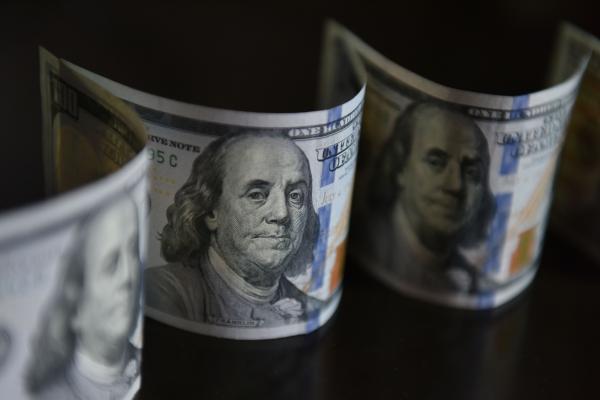
At Hudson, Senior Fellows Brendan Brown and Harold Furchtgott-Roth and Mises Institute Senior Fellow Alex Pollock will discuss the book’s findings and how gold-based monetary reform combined with the increased use of modern analytical tools can help end the inflationary spiral.
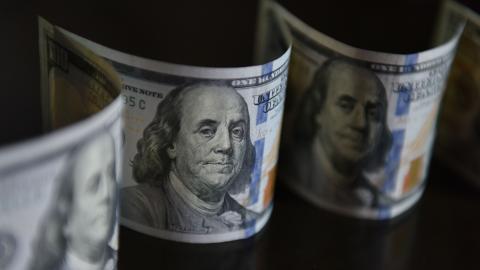
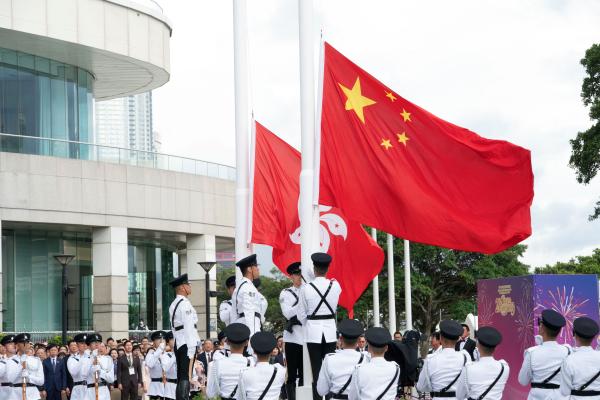
Join Senior Fellow Michael Sobolik and an expert panel for a discussion about a new report from Hong Kong Watch on the state of Hong Kong and how US policymakers can close the loopholes Beijing exploits.
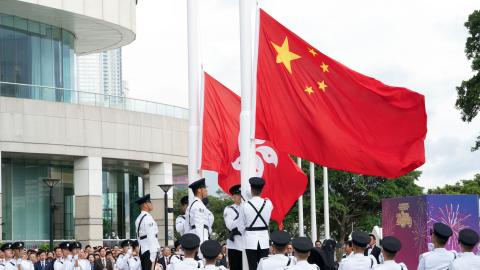
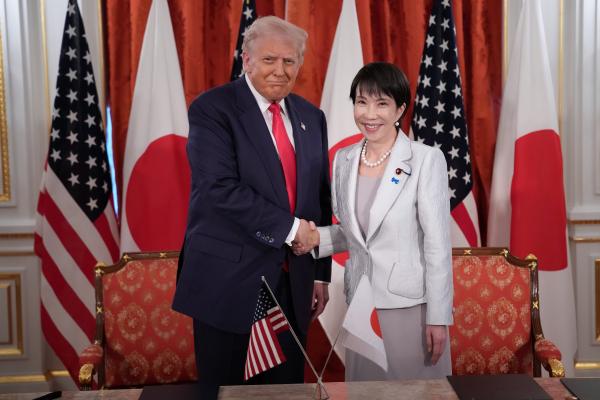
To further explore the fund and its allocation, Hudson Institute’s Japan Chair will host an event featuring two panels with financial, industrial, and policy experts.
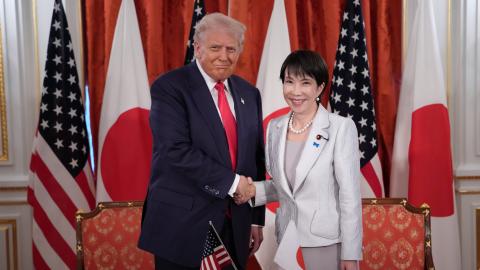

Join Hudson Senior Fellow Nadia Schadlow for a wide ranging discussion with Vinci on the book’s findings and the future of intelligence operations.

